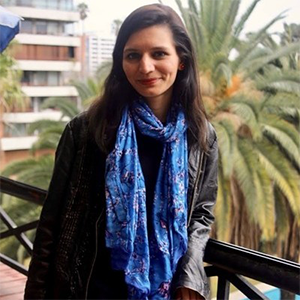KNIFE OR SWITCHBLADE
I belong to that category of men
who carry a knife or switchblade in their belt or pocket.
Everything they love fits into a shoebox.
They’re content with a hot meal,
the first classical radio station they find,
a room with curtains shut
day and night.
Men who hammer a nail on the door
when they want to hang a jacket.
And if you sneak up behind us, cover our eyes
with your hands and ask us to describe
the wallpaper, you’ll get no answer.
Not long ago my dad’s dad asked me,
fishing for some trout
after reminding me for the millionth time
I should throw the bait into the darkest
deepest waters:
Have you ever noticed the specks of dust
floating in a sunbeam?
Those men who are left gobsmacked
by specks of dust in a shaft of light
that’s filtered through shutters or curtains
since they were kids. And who hate those other men
of a single book.
Yes, I belong to that category of men
with a knife or switchblade in their belt or pocket
forcing themselves not to desire anything,
because to desire is pain
and all that remains is a battered photograph
in yet another wallet full of anything
except cash.
Men who when they age
prefer to die of hunger and pride
rather than pinch a grape
off a supermarket display.
Awkward and sentimental men
who don’t remember what they dream
and while awake, stay silent.
Men who only have one survival
mechanism: repression.
And there come oceans, centuries, and still
they look for a little house where they can collapse,
punish their kidney, love and be loved,
on this beach of white stones
where moonlight crashes down,
and the southern ocean.
Yes, I belong to those men who cook.
Who raise children that don’t look like them.
Torn between the good and the alehouse, who drink.
Vexed by sun
they join with others, to pray it rains.
Vexed by rain,
they join with others, to pray the sun returns.
Men who come and go, with a knife
or switchblade in their belt or pocket,
in gusts, from the bed of a woman
who barely puts up with them,
but leaves hot water in the thermos.
Something to put on bread, tea or coffee,
before they go back to the charge
—whatever we’re working on—
under this sun that heats just a little,
but gives light.
LET ME EMBRACE YOU IN THE COLD,
not speak a word to you in this country
where everything is a criminal vendetta.
A worn-out straw mattress that at any moment
we’ll throw in the street and spray with kerosene.
Let me look at you until we’re two
against the rest of the world.
A complicit gaze in a ghost town
where everyone points the finger at each other.
As the last yellow lemon
we call sun dangles from the lemon tree,
swaying in silence, like us,
between chaos and art.
OUR FIRST JOB WAS TO GO WITH DAD
to dig graves.
Strike the blunt edge against stones,
drive the shovel in deep.
Don’t think poetry taught me any lesson.
That I’ll say, what a shitty job.
And don’t imagine it gives me no pain to bury
what I hate, worth a damn.
Or that I wouldn’t seize a shovel
amidst a wild garden,
in corners no one visits.
Sometimes, with a knot in my stomach,
I remember the pit I dug in the cemetery
for that season’s Edgar Allan Poe or Annabel Lee.
Yes, with a knot in my stomach
I retain what my father told me, smiling sadly:
get on with it.
You can always start again,
pick everything up again,
for love of art.
On a shitty day, row against the current.
Under merciless sun or treacherous storm,
you can go, smiling and serene, to dig a hole
for a rogue or hero.
Or deal a blow to their nape
with your work tool
in the midst of the rough fields
or park of illusions,
after you carve a stupid ditch
to throw dirt over a coffin in this fatherland
of schemers and snitches.
Traitors that live and die for coins,
a minute of attention.
In this country you can always
slaughter free of consequences,
destroy somebody with reason,
without reason,
because we speak the language of Cervantes
with stitches, as Vicente Pérez Rosales put it.
Six feet deep in literature
we’ve dug up the poem of death and life
since we were kids,
and the law that the strongest rules
is the first thing we learn
on these streets and tombs
“by reason or force.”
WHAT MIGHT SOME OF YOU HAVE BECOME
without suspicion, that bastion of the hopeless
whose pelican hearts stroll along the esplanade,
fed up with eking out a life on shit-pounded stone.
No benevolence or tenderness was given to you.
The hands of time did not allow you to read eternity
or share the hard crust of art.
Every criticism was a dagger in your hands
you used to stab others in the back, your only desire malice,
to withhold glory from anyone who tried,
in the shadows of shadows, in the litoral of poets,
to dream and work, with gambits, taking the plunge.
Translated by Jessica Sequeira



